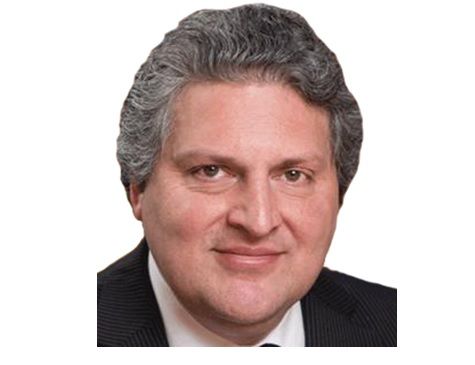BRADY DOUGAN DESERVES so much more credit than he’s got so far as Credit Suisse’s outgoing chief. After steering the bank through the financial crisis without resorting to State aid; after dealing with the traumatic impacts of fall-out from the crisis; working on the governance factors that are so crucial to the industry; and working tirelessly to steer the group in the right direction and do the right thing by internal and external stakeholders, I say Dougan should be commended.
In talking to chairman Urs Roehner to start the transition process, once he’d figured out he was probably going to run out of road sooner rather than later, he acted with the sort of decorum typical of the man. Yet with the comment that’s emerged since the appointment of Tidjane Thiam – which I guess in fairness only summarises the chatter that’s been growing louder over 18 months – you’d have thought Dougan had committed an unspeakable sin.
There was a time when CEOs were there to use their experience, ability and judgement to make sound business decisions in order to optimise current revenues and prime future ones. Bank CEOs, it seems, have become fair game these days for a rabble of baying regulators, politicians, analysts, muck-rakers and agents provocateurs all saying something slightly different, who certainly bear no accountability and couldn’t run a bank if their lives depended on it.
They yelp and shriek for immediate change and immediate results in an environment in which immediacy just isn’t possible. You can’t conjure up superior ROEs overnight, any more than you can magic higher client trading volumes. Or market volatility or a proper rate structure. Or change the revenue structure of your business; or wave billions of dollars of non-core assets into the ether with the wave of a magic wand.
Changes such as these are matters for the cycle, not the Swiss precision watch.
OK, so the criticism levelled at Dougan is that he was too slow to make deeper cuts to the investment bank, particularly in FICC, and to face up to the realities of the new Basel III world. But the bank was making cuts in RWA and capital commitment to certain businesses. And Dougan was as focused on optimising return on capital and on hitting target leverage ratios as anyone.
Lest anyone forgets, Credit Suisse continues to have a world-class investment bank with solid capabilities across the world across IBD (M&A, ECM and DCM), equities and fixed-income trading.
Changes such as these are matters for the cycle, not the Swiss precision watch
EVEN WITH ALL the tweaking that’s been going on, it’s a highly credible player in G10 credit and emerging markets; high yield/ leveraged finance, DCM and advisory (the highest-ranked non-US firm so far this year in US M&A); a world leader in securitised products, cash equities, EQD and converts. It was the highest-ranked non-US bank last year in multiple segments of ECM (including Asia and LatAm); and ranked second in EMEA IPOs. This is not irrelevant.
So when I read the cacophony of analyst output talking already – after one day – of Thiam ripping another 3,000 jobs out of the investment bank, cutting SFr150bn of assets out of the FICC business, and steering Credit Suisse into an Asian private banking niche, I almost despair.
At the very least I was glad that on that pointless March 11 session hosted by Roehner, in which Dougan and Thiam both participated, Dougan had an opportunity to point to the bank’s strategic ROE last year as being among the highest in the industry: “When I look at the strategic businesses in investment banking making a 17% return on capital both in 2014 and 2013, I think that’s a pretty good performance and that shows that it’s a business that capital’s been taken out of, risk’s been taken out of, and I think that’s actually a good process.”
He also pointed to the thoughtful engagement with regulators on market structure “that’s helped design and pioneer a number of important structures; CoCos, bail-in debt, and many others”. On the pioneering bit, who can forget the US$2bn of high-trigger 7-7/8% 30NC5.5 Reg S Tier 2 Buffer Capital Notes (BCNs) that Credit Suisse sold in 2011 – with PONV language – that came stapled to a Tier 1 exchange offer to long-term shareholders Qatar Holding and Olayan Group?
Or the ground-breaking Partner Asset Facility the bank came up with in the wake of the crisis that illustrated Dougan’s desire to front-run and gold-plate FSB rules on banker compensation?
PEOPLE HAVE SO far been very kind about the new CEO, but I just don’t know. He’s lauded for the turnaround he’s presided over at Prudential. But he royally screwed up the AIA takeover, costing his shareholders £377m in break fees and a £30m fine for failing to deal with the regulator in an open and co-operative manner.
And that’s despite repeated messages to do so from the lead sponsor on the massive £14.5bn rights issue Thiam would have needed to get the deal financed – a certain Credit Suisse. People say it matters little that he has no banking experience. I say it does. Unless all you’re going to do is hack the investment bank into submission. In which case anyone can do it …
Let me close, then, with commendations to the man who survived a quarter of a century at the storied institution that fought with, toyed with, experimented with and then finally tamed the incomparable Credit Suisse First Boston and Credit Suisse Financial Products and survived to tell the tale.
